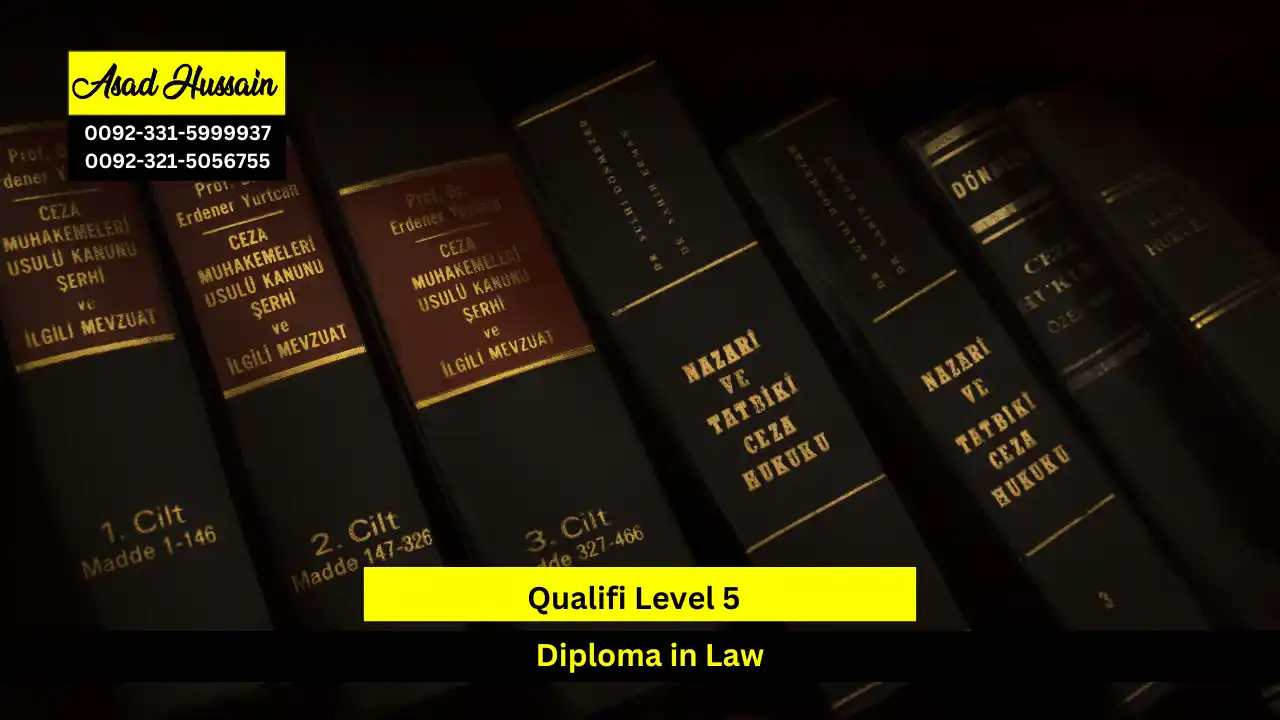In today’s fast-paced legal environment, staying ahead of the curve and expanding your legal expertise is crucial. The Qualifi Level 5 Diploma in Law offers an exceptional opportunity for individuals aiming to deepen their understanding of legal principles and advance their careers in law. Here’s an in-depth look at what this diploma entails, its benefits, and how it can serve as a stepping stone for your professional development.
The Qualifi Level 5 Diploma in Law is a comprehensive qualification designed for those seeking to build upon their existing legal knowledge and skills. It provides a solid foundation in key areas of law, preparing students for more advanced legal roles or further academic study. This diploma is ideal for professionals already working in the legal field, as well as those looking to transition into a legal career.
The Qualifi Level 5 Diploma in Law is an invaluable qualification for those looking to advance their legal knowledge and career. By offering a blend of theoretical understanding and practical application, this diploma prepares students for significant roles within the legal field and provides a strong foundation for further academic pursuits. If you’re passionate about law and eager to enhance your expertise, the Level 5 Diploma is a compelling choice that can open doors to numerous opportunities in the legal profession.
Program Highlights
The Qualifi Level 5 Diploma in Law consist of 120 credits for the completed qualification.
Mandatory Units
- Equity and Trusts
- EU Law
- Land Law
- Law of Tort
- The qualification has been designed to be accessible without artificial barriers that restrict access, for this qualification applicants must be aged 18 or over.
- In the case of applicants whose first language is not English, then IELTS 6 (or equivalent) is required. International qualifications will be checked for appropriate enrolment to UK higher education postgraduate programmes where applicable. The applicants are normally required to produce two supporting references, at least one of which should preferably be academic.
Equity and Trusts
- Understand the Fundamental Principles: Demonstrate a comprehensive understanding of the principles of equity and trusts, including the nature and purpose of equitable remedies and the creation of trusts.
- Analyze Trust Structures: Critically analyze different types of trusts, including express, resulting, and constructive trusts, and their respective applications in various legal contexts.
- Apply Legal Theories: Apply legal theories related to fiduciary duties, trustees’ obligations, and the beneficiaries’ rights in practical scenarios.
- Resolve Disputes: Develop the ability to resolve disputes involving trusts and equitable issues, including the application of relevant case law and statutory provisions.
EU Law
- Understand EU Institutions and Law: Demonstrate an in-depth understanding of the structure and functions of the European Union, including its key institutions and the sources of EU law.
- Analyze EU Legislation: Analyze and interpret EU regulations, directives, and decisions, and assess their impact on member states and individuals.
- Evaluate Case Law: Evaluate significant case law from the Court of Justice of the European Union (CJEU) and understand its influence on the development and application of EU law.
- Apply EU Law Principles: Apply the principles of EU law to real-world scenarios, including issues related to free movement, competition law, and human rights.
Land Law
- Understand Property Rights: Demonstrate a thorough understanding of property rights and interests, including ownership, leasehold, and mortgage rights.
- Analyze Land Transactions: Analyze the legal framework governing land transactions, including transfer of title, registration, and land use.
- Apply Legal Principles: Apply principles of land law to practical problems, such as disputes over property boundaries, land development, and landlord-tenant issues.
- Evaluate Legal Reforms: Evaluate recent reforms and developments in land law and their implications for property transactions and ownership.
Law of Tort
- Understand Tort Principles: Demonstrate a clear understanding of the fundamental principles of tort law, including negligence, liability, and the various types of torts.
- Analyze Tort Cases: Analyze landmark cases in tort law and understand their impact on legal principles and practice.
- Apply Tort Law: Apply tort law principles to hypothetical scenarios, including the assessment of liability and the calculation of damages.
- Resolve Legal Issues: Develop the ability to resolve legal issues arising from tortious actions, including the application of relevant statutes and case law.
The Qualifi Level 5 Diploma in Law is ideal for individuals seeking to deepen their understanding of legal principles and advance their careers in the legal field. This course is tailored for professionals currently working in law or related sectors who aim to enhance their expertise and take on more complex roles. It also suits those who have a foundational knowledge of law and are looking to transition into specialized legal positions. Additionally, the diploma is beneficial for recent graduates in law or other disciplines who aspire to gain a deeper insight into specific areas of law and improve their career prospects. Overall, this course is designed for motivated individuals who are committed to expanding their legal knowledge and achieving professional growth in the dynamic legal landscape.







